The DIA Millage Is Up For Renewal. Here’s What Students, Seniors Who Benefit Think.
The Detroit Institute of Arts millage is up for a renewal vote on March 10th — after the museum said it wouldn’t need an extension. DIA patrons speak to WDET’s Laura Herberg on the potential renewal.
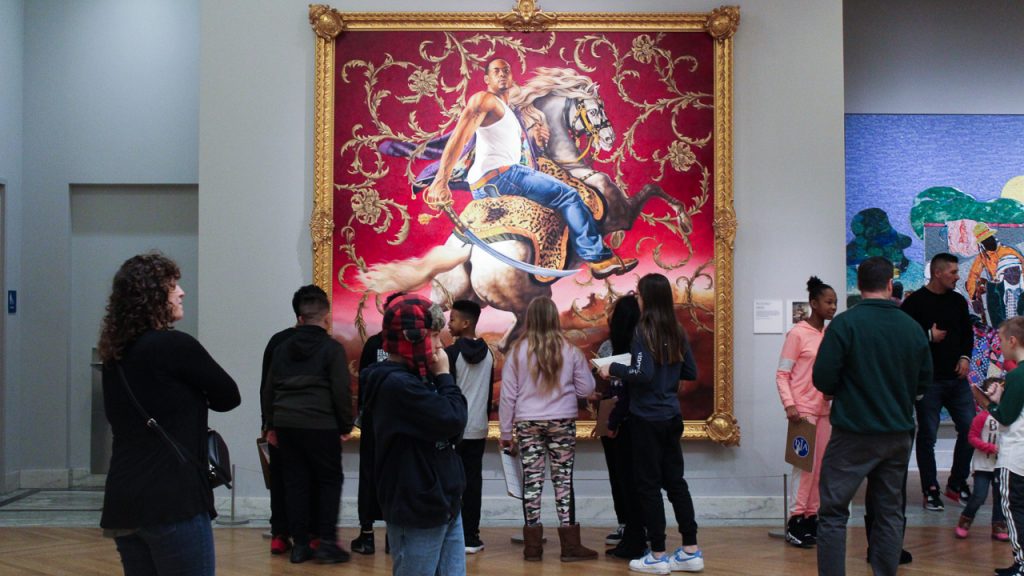
On a February morning, sixth graders from Berkley’s Anderson Middle School have come in to the Detroit Institute of Arts for self guided tours.
The students stare up at a 10 by 10 foot painting by Kehinde Wiley, the artist who may be most known for painting President Barack Obama’s official portrait. This piece is not of Obama.
“In the past, we were an organization that was looking a little bit inwards. Thanks to this millage and the service agreement we have, we are out facing.” – Salvador Salort-Pons, Detroit Institute of Arts
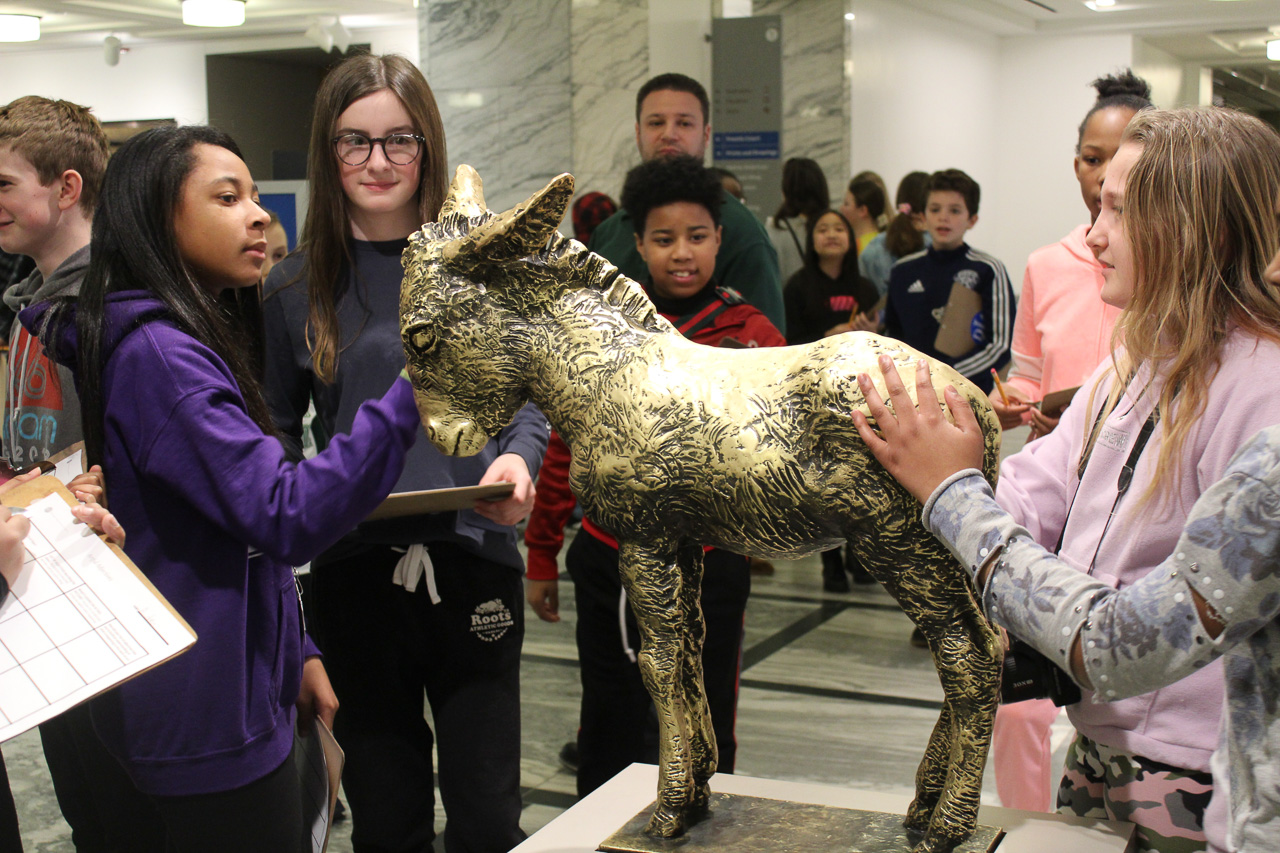
“That looks like Ice-T!” one of the kids exclaims.
“Guys, he’s wearing Timberlands!” points out another sixth grader.
The portrait, seen above, shows a black man in a white tank top and jeans mounted on a white horse with a sword in his hands. Wiley depicts black men he meets on the street in versions of historic paintings. This particular portrait is modeled after a painting from 1812 of a French cavalry officer. There’s a little picture of the original piece next to Wiley’s. One of the girls looks back and forth between the two works.
“Oh I get it! So that,” she says, pointing to Wiley’s piece, “is basically that,” she says pointing to the older picture, “but it’s just African American.”
Click on the player above to DIA patrons reflect on the value of the DIA millage, as it returns to the ballot on March 10th.
On an average school day, about 500 kids come through the DIA. This group came on a bus paid for with funds raised from the DIA millage, a .2 mill tri-county property tax. Under the millage, a family in Wayne, Oakland or Macomb county with a home worth $100,000 and with a taxable value worth half that ($50,000) would typically pay $10 a year for the millage. The current millage expires in 2022.
The millage was introduced in 2012 to help a struggling museum pay for day-to-day operations and build its endowment. Officials said that within ten years the institution would raise $400 million.
With just two years left until the tax expires, the DIA’s annual operating budget has not only increased, but the museum’s endowment is more than $100 million short of its goal. According the museum, the millage accounts for approximately 65% of the museum’s annual operating budget. The remainder of the budget is funded through earned revenue, grants and donations.
Now, in Michigan’s March 10th election, the DIA is going back to voters to ask for a millage renewal.
DIA Says City Bankruptcy Set Museum Back
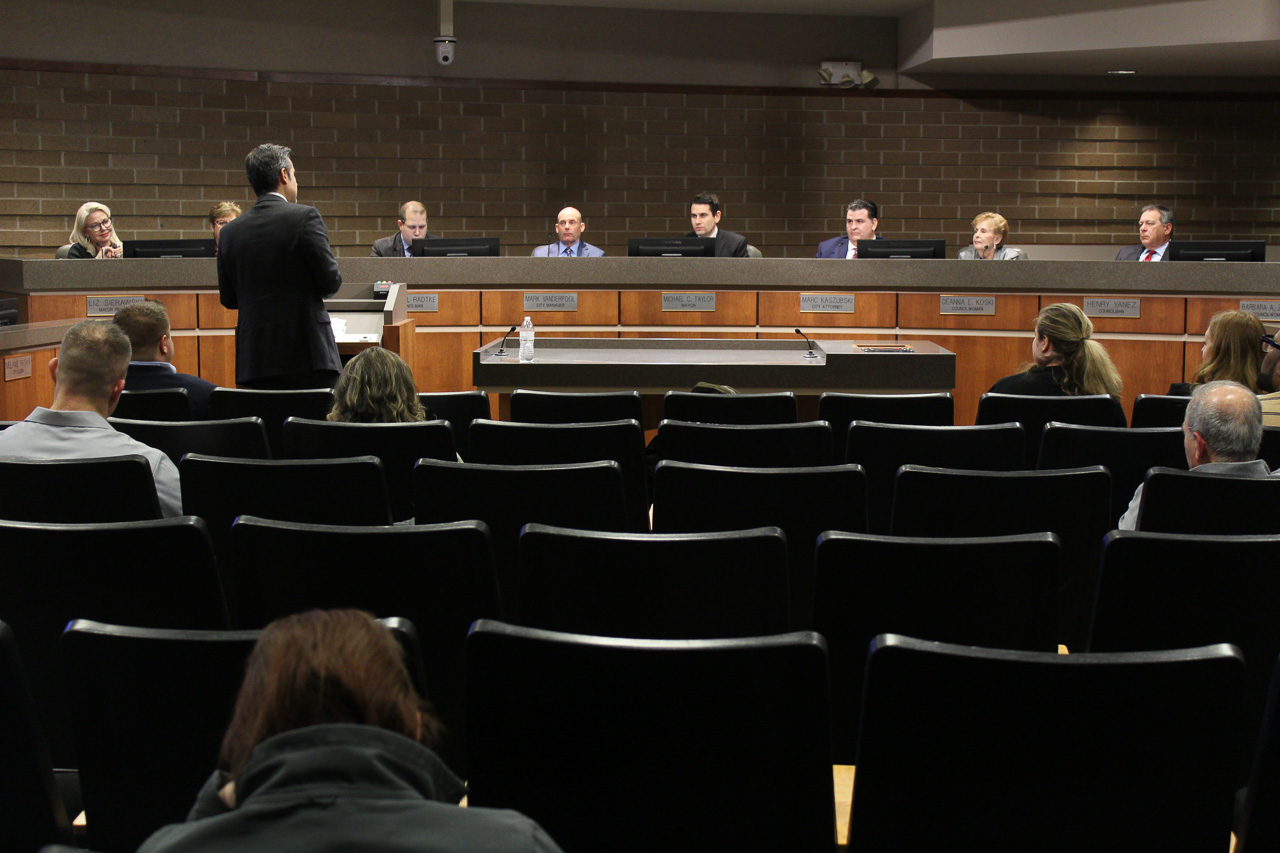
During the 2012 millage campaign, DIA officials said the museum would not be seeking a renewal if the millage passed. Obviously that has changed. DIA Museum Director Salvador Salort-Pons defended the decision to go back to voters on WDET’s CultureShift.
“When in 2012 we said that we were going to get that endowment up to $400 million, we didn’t know that the city of Detroit was going to go into bankruptcy,” said Salort-Pons.
During bankruptcy negotiations in 2014, there was talk of selling off the museum’s art to fund city pensions.
In order to keep Detroit from doing that, the museum raised millions of dollars for the city that could have otherwise gone towards its endowment. That’s part of the reason the museum is asking for a renewal now. But Salort-Pons says the DIA is also asking for a renewal because the tax revenue has changed the way the museum operates.
“In the past we were an organization that, generally speaking, was looking a little bit inwards. Thanks to this millage and the service agreement we have with Oakland, Wayne and Macomb counties we are out facing,” he says.
The service agreement spells out what the DIA is doing for county residents in exchange for paying the millage. In addition to funding transportation to the museum for school groups, on Thursdays, the DIA also provides free buses to the museum for senior groups of 25 or more.
“The DIA is an asset in another county and if northern Macomb County feels that this is not something that they want to help contribute to they should have the opportunity to opt out.” – State Representative Jeff Yaroch
On a recent Thursday, dozens of seniors have come to the DIA from Canton, Clawson, St. Clair Shores and other cities.
One of the groups is from a church in Detroit’s Brightmoor neighborhood. A volunteer tour guide is taking them through an exhibit on African American art owned by local collectors. Carlton Kirtz is a minister with the church group.
“This is my first time here and it’s really impressive,” says Kirtz. “I’ve never seen a lot of black art that I’ve seen here today. It’s real impressive.”
While Kirtz is captivated, he says he’s still not sure yet what way he’ll vote on the DIA’s millage renewal this month.
“I have to look at it and see everything that’s covered in it first before I make a judgement or a decision on it,” he says.
Sterling Heights resident Marge Starr came down with a different church group. She says she voted for the DIA millage in 2012 but she’s been unsure about doing so again since she rarely comes to the museum. She says it’s a hassle to come down on I-75 with the construction that’s going on there, and then she has to find parking. She’s also reluctant to come downtown, “And I don’t mean just getting mugged, but tripping over things I’m at that age.”
Macomb County Questions Millage
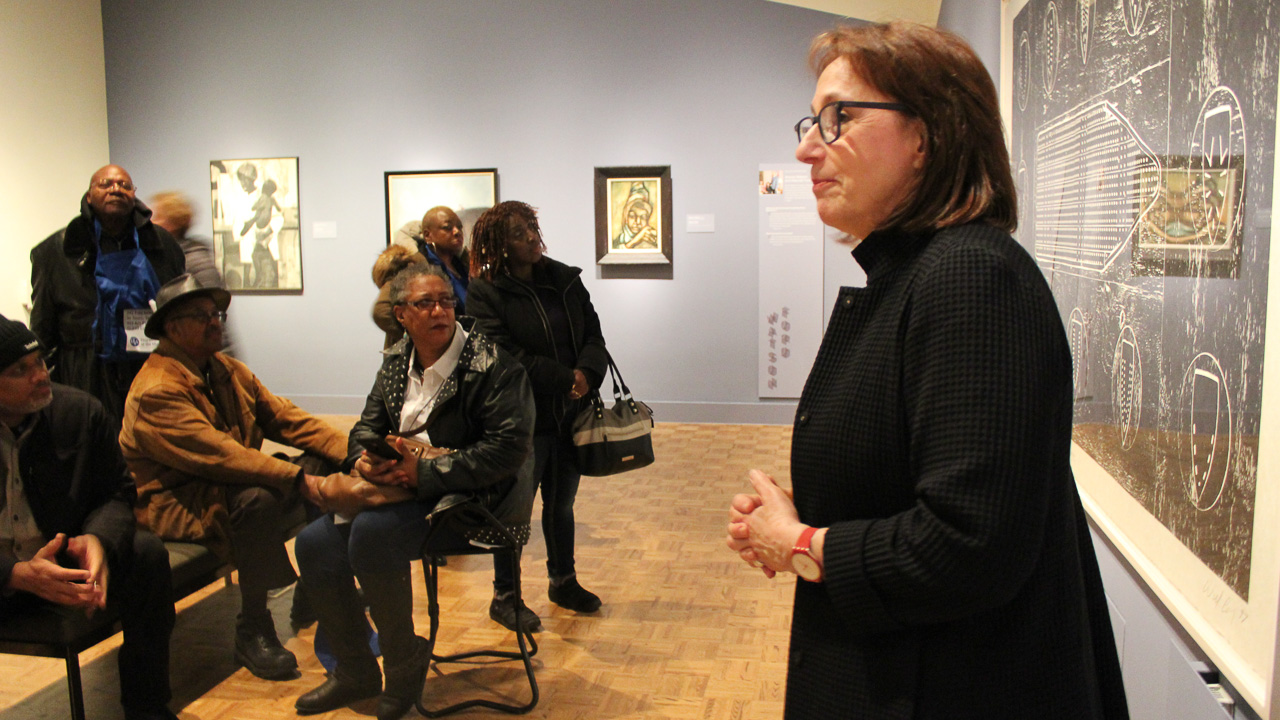
Starr’s reluctance to visit the museum is something she shares with many of her fellow Macomb County residents. The 2012 millage passed easily in Wayne and Oakland Counties and was narrowly approved in Macomb County.
DIA attendance from the county has been trending downward, after spiking the first year after the millage. But Starr says her experience today, coming down on the DIA bus, has changed her perspective. She says she’s decided she’s going to vote yes on the renewal.
“I was hesitant until I came down today and now I think it’s really worth it,” says Starr. “This is just so wonderful to come down like this, for free too. And we can come any time!”
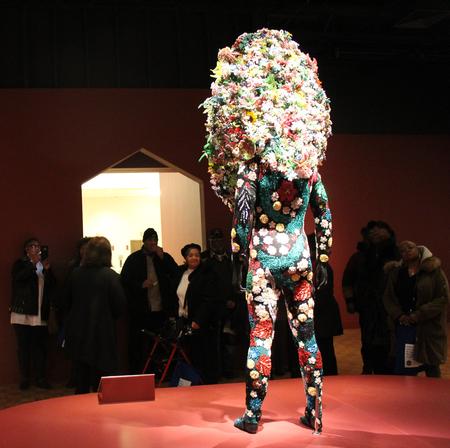
But one state lawmaker from the northern part of Macomb County says his constituents shouldn’t have to pay for the millage renewal even if it passes.
State Representative Jeff Yaroch introduced a bill that would allow communities to opt out of paying the tax – the same way residents can opt out of paying a SMART bus tax.
Yaroch – who represents residents in Armada, Richmond, Memphis and nearby towns – says he introduced the bill because most of his communities voted against the millage last time.
“The DIA is an asset in another county and if northern Macomb County feels that this is not something that they want to help contribute to they should have the opportunity to opt out,” he says.
Yaroch would not share how he’s personally planning to vote on the DIA millage but he says he has visited the museum.
“I was very disappointed that in 2012 people were told that they’d get free admission and then surprise, after it passes: ‘Well, we didn’t really mean special exhibits,'” says Yaroch.
Admission to the museum ranges from $6 for youth to $14 for adults, with children 5 and under getting in free. While residents of the tri-county area currently receive unlimited, complimentary regular admission, it’s true that they are charged for special exhibits.
The DIA is not the only proposal residents will see on their March 10th ballots. There are several local millages across the tri-county area, mostly for school funding. Find more details here.
Support the news you love.
Here at WDET, we maintain our journalistic integrity through independent support from readers like you. Because you value WDET as your source of news, music, and conversation, please make a gift today.
